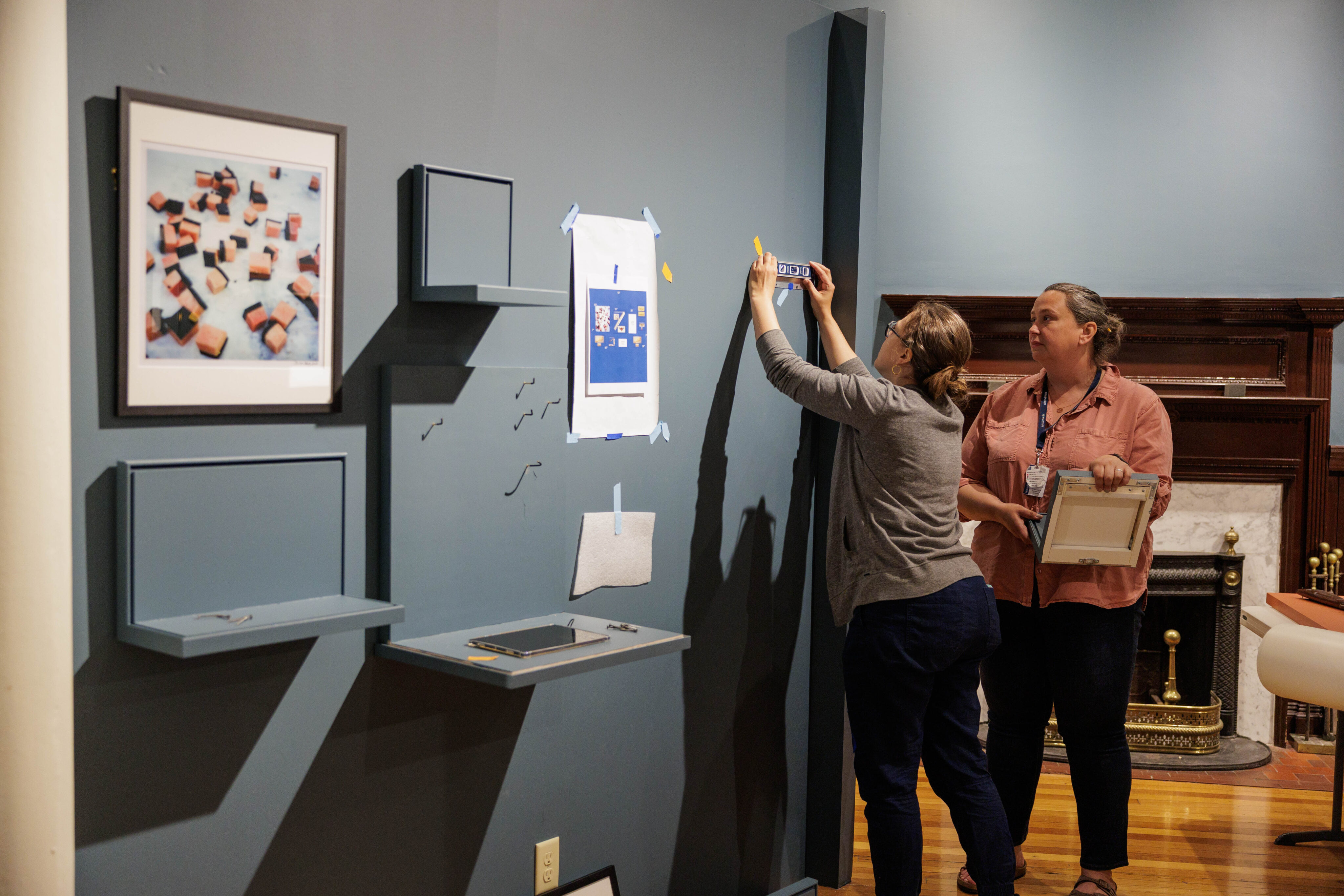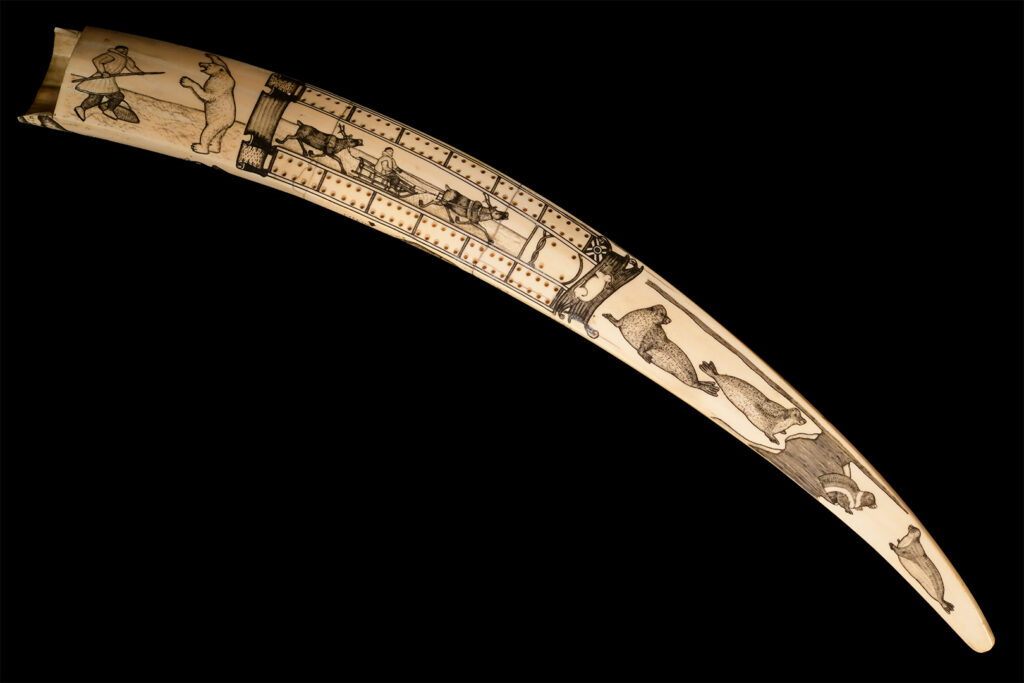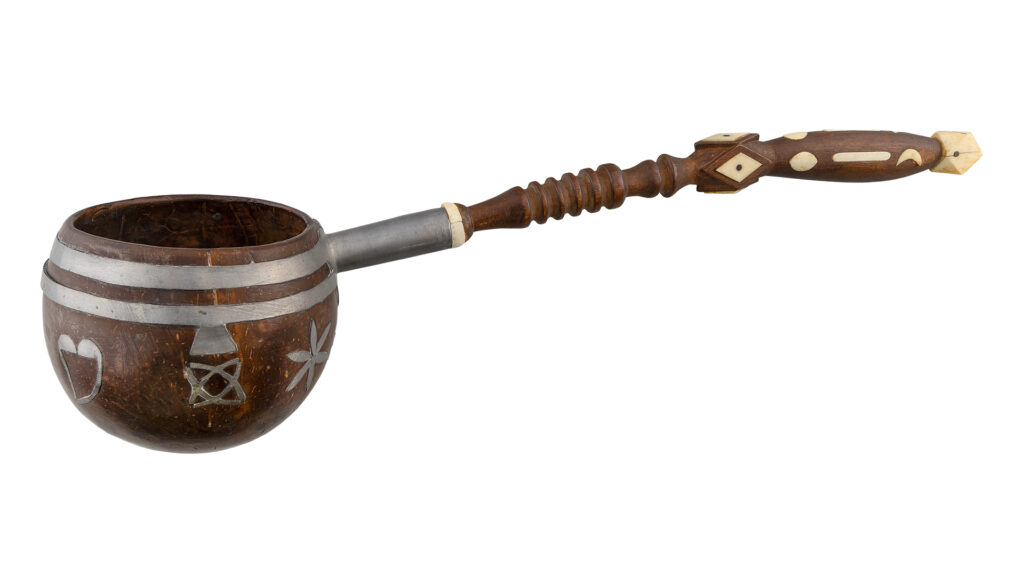
Tuesday, October 29, 3-4pm EST, free, on zoom
The Making of The Wider World & Scrimshaw, Part II
Tuesday, October 29, 3-4pm EST, free, on zoom
with Erin Gingrich, Michael Harrison, Marina Wells, Melanie Correia, and Naomi Slipp
Join members of the curatorial team and the exhibition’s advisory board to learn about how the New Bedford Whaling Museum’s special exhibition The Wider World & Scrimshaw came together. Hear from scholars, artists, and curators about their connections to the project, what they learned through this process, and where their work goes from here. Speakers will highlight their favorites from among the over 300 items in the show, and share what themes and stories resonate most with them. This free, online program is a unique opportunity to peek behind the scenes, listen, and learn.
Melanie Correia is Associate Curator of Exhibitions & Collections at the New Bedford Whaling Museum, where she manages the execution of a robust exhibition program and collections-based projects for the museum. Previously, she was the Collections Manager & Visitor Services Coordinator at the Duxbury Rural & Historical Society (DRHS). Starting in 2016, she curated a number of exhibitions including those focusing on undiscovered stories in history, and installed the award-winning Re-Imagine Bradford exhibition. At the DRHS she worked on new interpretation at the historic house sites, the first online exhibition (Creating a Legacy: 400 Years of Duxbury & the Pilgrims), the first community exhibition (You Are Here), and the first cell phone tours for the DRHS’s properties. Before her time in Duxbury, Melanie was the Assistant Curator at the New Bedford Whaling Museum where she began as a Photo Archives Intern in 2009 after graduating with her B.A. in Art History and English from the University of Massachusetts, Dartmouth.
Erin Ggaadimits Ivalu Gingrich is a Koyukon Denaa and Iñupiaq carver and interdisciplinary artist working and subsisting in South-Central Alaska on Denaʼina homelands. Honoring her Arctic and Subarctic ancestral homelands, Ivalu's work represents what has tied her and her ancestors to the North. Through carved, painted, and beaded sculpture, mask and lens-based forms, Ivalu creates representations of the revered wild relatives that have provided for her, her family, and her ancestors since time immemorial. Connection to the realities of subsistence lifeways and arctic survival is vital to Ivalu’s work, which mirrors what keeps us fed and present in the North. She is a recipient of a 2025 Eiteljorg Contemporary Art Fellowship.
Michael R. Harrison is Chief Curator and Obed Macy Research Chair at the Nantucket Historical Association. He has held curatorial positions at the National Building Museum, the Smithsonian’s National Museum of American History, and the Riverside Museum in Glasgow, Scotland. He is the author of Collecting Nantucket: Artifacts from an Island Community (NHA, 2018), and Glasgow Museums, the Ship Models: A History & Complete Illustrated Catalogue (Seaforth, 2019). He is a graduate of the University of Pennsylvania and George Washington University.
Naomi Slipp is Chief Curator and Director of Museum Learning at the New Bedford Whaling Museum and oversees education, curatorial, and collections. She has presented widely on nineteenth-century American visual and material culture and intersections between art and science, and published in Sculpture Journal, Panorama, and British Art Studies, and the edited volumes Bodies beyond Borders: Moving Anatomies, 1750–1950, Ecocriticism and the Anthropocene in Nineteenth-Century Art and Visual Culture, and Victorian Science and Imagery: Representation and Knowledge in Nineteenth-Century Visual Culture. Recent exhibitions with scholarly publications include "A Singularly Marine and Fabulous Produce: The Cultures of Seaweed" and "Re/Framing the View: Nineteenth-Century American Landscapes."
Marina Dawn Wells is Assistant Curator of History & Culture at the New Bedford Whaling Museum. Marina has been a fellow at institutions such as the Winterthur Museum, Mystic Seaport Museum, and Nantucket Historical Association, and previously worked as the New Bedford Whaling Museum's Photography Collection Curatorial Fellow. Marina’s academic interests include gender and sexuality, oceanic studies, and nineteenth-century print culture, which influences their current research project, “Making Men from Whales: Whaling Art and Gender in New England, 1814–1861.” Wells holds a PhD in American and New England Studies from Boston University, and a BA from Colby College in art history and English literature.
This program and corresponding exhibition and publications and contributions was made possible through major support from The Henry Luce Foundation and The Terra Foundation for American Art; and contributions from The CIRI Foundation, The Decorative Arts Trust, the Jessie Ball DuPont Fund, Furthermore: a program of the J.M. Kaplan Fund, and a National Maritime Heritage Grant, administered by the National Park Service, US Department of the Interior, through the Massachusetts Historical Commission



